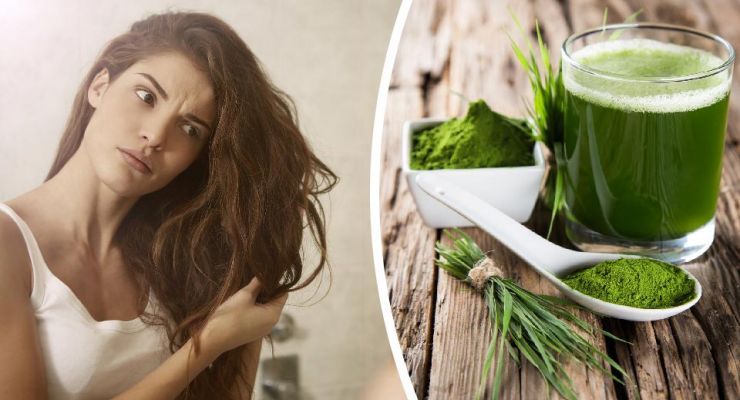How you style your hair communicates your personality to the world. But did you know that your hair communicates with you? Depending on its condition – and how much of it you have – your hair may be trying to tell you something. Our locks hold information about everything from our diet to genetic mutations and disorders. Here are seven things to look out for.
1. You’re stressed out
It’s not an old wives’ tale: stress really does cause gray hair. “Oxidative stress may affect pigment-producing cells,” says dermatologist Paradi Mirmirani. Hair turns gray when melanocyte cells in the hair follicles stop producing melanin, which gives color to both skin and hair. According to Dr. Chris Iliades, hair would be white without melanin.
Make sure to eat a healthy, balanced diet that includes plenty of antioxidant-rich ingredients can help combat gray hairs. Try adding one or more of the following foods to your diet to fight grays:
- Lamb or beef liver
- Chickpeas
- Chicken
- Lentils
- Spirulina
- Marmite
Liver and spirulina are particularly beneficial to hair as they are rich in copper, which might help fight premature graying.
2. You need to change your diet
While we’re discussing food, dull and thin hair might be the result of eating too many highly processed foods. When you don’t eat a balanced diet, the body sends all the nutrients to the vital organs, but neglects the more cosmetic parts of our body: nails and hair. Make sure to eat a diet rich in fruits and vegetables — the antioxidants will be good for your hair — as well as protein, the main building block of hair.
3. You should make it to the dentist every six months
If your hair pulls out easily, you may have a hair disorder like anagen hair syndrome, caused by a mutation in the hair protein. Keratin is essential to both hair and tooth enamel, so a mutation will affect both your locks and your pearly whites — it can make the tooth surface softer and more susceptible to bacteria and cavities.
To keep your teeth healthy:
- Reduce the amount of sugar you eat
- Eat raw dairy and calcium-rich foods
- Use mineralizing toothpaste
- Try oil pulling
4. Your hormones might be off
If your hair is becoming thinner, it might be time to see your healthcare provider to assess your hormone levels. For women, thinning hair can be related to polycystic ovarian syndrome (PCOS). It could also be an imbalance in Dihydrotestosterone (DHT), a testosterone derivative that can kill hair follicles, which can affect people of all genders.
5. You should schedule an optometrist appointment soon
Do you have blonde hair and blue eyes? Studies have shown that people with this hair and eye color combination have less sun-protective melanin, which makes them more prone to age-related macular degeneration — the loss of the center field of vision. Wear sunglasses and a floppy hat if you plan to be out in the sun for long periods of time, and be sure to check in with an optometrist regularly.
6. You’re being too hard on yourself
A study published in the Journal of Behavior Therapy and Experimental Psychiatry found that perfectionists develop habits of picking at their hair, nails, eyelashes or eyebrows. It can become a disorder — one that’s closely related to tic disorders — when it causes the person pain. If you’re a perfectionist with thinning hair, it’s time to start exercising some mindfulness. Pay attention to the behaviors that cause you to tug at your hair and see what you can do to change them. Take time for self-care and be sure to find something physically active to do every day.
Try to work one or more of these exercises into your day:
- Meditation
- Yoga
- Prayer time
- Tai Chi or Qi Gong
- A walk in nature
- Time playing your favorite sport
7. Your thyroid might not be working properly
Thinning hair can be caused by different types of hormonal imbalances, including hypothyroidism. If you’ve had hypothyroidism for a long time — or if it’s especially severe — it’s likely you’ve noticed some hair thinning around your entire scalp. The thyroid is a major player in the endocrine system and can affect how well your hair grows.
Always mention changes in any part of your body to your healthcare provider, and don’t forget about your hair. Its condition might be a sign that something else is out of balance. Also, pay attention to your hair if your provider prescribes a new medication. It turns out, the top of our heads can tell us plenty about the state of our overall health.
Have you noticed one, or more, of these conditions with your hair? Let us know in the comments.

